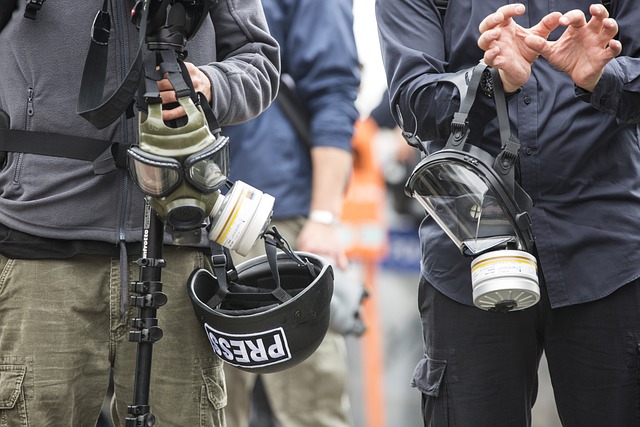The Advantages of Dictation Transcription to Journalists and Reporters
Dictation transcription is a process of writing down words spoken by an individual while you talk to them or they make a speech. It’s a procedure that has been the primary duty of office secretaries for years. Now, tools make the process easier and more accurate by taking recordings digitally. The recorded speeches then go to transcription providers, who transcribe the dictations into text documents.
This article will help you learn more about dictation transcription services and why they’re essential for you as a journalist or reporter. Let’s dive in!
Why Do Journalists and Reporters Need Dictation Transcription Services?
Journalists and reporters need dictation transcription services to convert recorded audio and video files into written documents. Such text documents can diversify media coverage in newspapers, magazines, books, blogs, websites, and e-books.
Written documents help the deaf, hard-of-hearing, and those who prefer written content access information conveniently. There are 48 million American citizens with hearing loss. And worldwide, 360 million people suffer from the same plight. All of them would miss critical info without dictation transcription. Therefore, transcripts ensure everyone accesses accurate information from various parties.
What Are the Benefits of Dictation Transcription to Journalists and Reporters?
Suppose you are a journalist or reporter who has yet to embrace technology in dictation transcription and still transcribe your many recorded audio files manually. There are several advantages of dictation transcription that you’re missing. Here are some of the merits of this valuable process:
Dictation Transcription Boosts Accuracy
One of the essential values of journalism, which is improved by dictation transcription, is accuracy. Note-taking while someone is speaking is a recipe for misquotes. Dictation transcription allows journalists to concentrate and engage further with the speakers. By focusing, they ask more relevant questions and get accurate answers while recording the sessions and getting precise transcripts afterward. The more attentive a journalist is, the more observant they are, hence a more unvarnished report.
Dictation transcription also gives journalists unembellished recordings of who said what in an interview. In case of a dispute, where one person says something and denies it later, transcripts come in handy. Since transcripts are easy to scan, one only needs to search for objective evidence from the document when such discussions arise.
Dictation Transcription Increases Information Access
Fact checks and obtaining specific information happen faster with written transcripts compared to audio files. By getting accurate transcripts, journalists can quickly access facts they could have missed when taking notes during ongoing speeches.
Detailed transcripts also increase information access to deaf and hard-of-hearing individuals, people unable to grasp exotic accents, and those who prefer written information over audio and videos. Through dictation transcription, journalists can diversify recordings and videos into e-books, articles, and press releases on their blogs and websites. Moreover, with transcription, a video that could be several gigabytes big could be converted to a more accessible text document that’s just a few kilobytes in size.
Dictation Transcription Saves Time
Time is money, and journalists can save both elements by hiring dictation transcription services. For instance, recording saves journalists time during interviews, allowing them to interact more with speakers. Manual dictation transcription is time-consuming as the interviewee may have to pause severally to let the reporter take notes.
Secondly, ease of access to information from transcripts translates to time savings. Accessing specific sections in an audio file can be a waste of resources, as you have to play, replay, fast-forward, and rewind the audio frequently. Transcripts solve this issue as they make identifying a particular part of speech easy, making fact-checking and reference fast.
Dictation Transcription Reduces Overhead Costs
In most instances, manual dictation transcription calls for an increase in personnel. A media firm may have to deploy a reporter to do the interview and another to act as a secretary and transcribe the conversation. Hiring more workers increases the cost of production.
With dictation transcription, the minimal staff is adequate as one journalist can interview as they record everything said. They only need a professional dictation transcription service provider to perform the conversion of audio to text at a fraction of the manual transcription cost.
Dictation Transcription Drives Convenience
Because they cut down the time and resources required, seeking dictation transcription services is the most convenient choice for obtaining a fast and affordable written transcript. Manual transcription consumes much time, is expensive, and results in inaccuracy and poor productivity.
Make Your Journalism Efforts Count
Every news agency’s wish is to have productive media coverage. Dictation transcription gives journalists an advantage by conveniently improving their productivity, accuracy, and access to every detail while saving time and cost.
While AI-generated transcripts may sound affordable, professional human transcription is the best choice for precision. Professional dictation transcription service providers, such as what you’ll find at https://gotranscript.com/transcription-services/dictation-transcription, offer journalists 100% human-generated transcripts. They guarantee timely deliveries at affordable prices.

